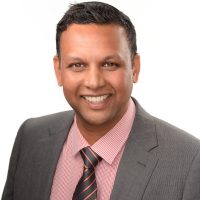Articles / The College vs the people

Recent Healthed polls show a stark difference between frontline GPs’ views on several major policy issues and the positions the College and other peak bodies are advocating for.
Urgent care clinics
For example, while the RACGP, the AMA and five other primary care peak bodies have united against the Government’s more than half billion dollar investment in Medicare urgent care clinics, 70% of over 1000 GPs in Healthed’s 26 November survey said they support UCCs in principle. Among the two-thirds of GPs whose patients had attended a UCC in the past month, sentiment was positive on a number of key metrics, with a clear majority saying UCCs had a positive impact on timely delivery of care (79%), reducing pressure on emergency departments (76%) and patient health outcomes (64%).
Non-GP referrals
Another example is the recent recommendation from the Scope of Practice review to allow non-GPs to refer directly to specialists in specific circumstances. While the College has staunchly opposed this, Healthed’s survey of 1242 GPs showed that 61% would support more health professionals referring, provided there was meaningful collaboration between the GP and the referrer.
Mandatory health checks for late career doctors
Then there is the Medical Board and AHPRA’s proposal to require mandatory health checks for doctors aged 70 years or older, in response to a disproportionate number of complaints targeting this age group. The RACGP argued that we should maintain the status quo, and that mandatory health checks should NOT be implemented. However, this contrasts with the majority of GPs in Healthed’s survey of 2287 GPs – where just 41% aligned with the College’s position and 59% supported some form of health assessment for late career doctors.
Fast-tracking IMGs
Yet another example is the recent decision to fast-track IMGs from the UK, New Zealand and Ireland. Although the College and ACRRM are both adamantly opposed, Healthed’s October poll of 1200 GPs showed that 55% supported fast-tracking IMGs from these countries.
One possible reason is that so few GPs are actively engaged with the College. The recent election of the RACGP president had the highest percentage of voters in years— but still fewer than 20% of eligible voters participated.
When asked for his take on the discrepancy, the recently sworn-in RACGP President Dr Michael Wright noted the importance of the wider membership getting more involved with the College.
“RACGP advocacy is informed by our members who contribute to our expert committees, specific interest groups, and regular member and advocacy surveys, including our annual Health of the Nation survey,” Dr Wright said. “We strongly encourage members to get involved, including in our new RACGP GP Advocate Network.”
“One of my priorities as President is to bring all members along in our advocacy journey, and to get involved.” – RACGP president Dr Michael Wright
Dr Wright said the findings are important – and reflect the need for nuanced policies.
“The surveys and their results highlight the nuances of many policy issues, and also the range of positions of specialist GPs around Australia. This diversity should be seen as a strength and also highlights that ‘one size fits all’ is often not the case in GP reform. We need to hear the voice of the profession in designing the health system that meets the needs of our patients, as well as the viability of general practice,” he said.
Dr Mukesh Haikerwal, deputy chair of the Australian GP Alliance and past president of the AMA, said many GPs may not be fully informed about the important details and potential impacts of the policies being discussed – whereas those who are on advisory committees and special interest groups receive briefings around the nuances of relevant issues that GPs at the coalface may not have access to.
“These are nuanced answers and it’s important to be informed, to make an informed comment,” Dr Haikerwal said.
“Your comment could suggest that you’re happy with a certain position — but you may not have a full understanding of that information and the repercussions — because they can be quite significant. You’ve just got to be aware of the bigger, broader picture, clinically, professionally, but also politically,” he continued.
Dr Gary Deed, a GP who is on an RACGP committee and chairs their diabetes specific interest group, but was not speaking as a representative of the College, said the context and evidence that people are basing their opinions around likely contributes to the discrepancy.
“I think people who answer the survey questions answer on a personal, experiential basis. But they’re not answering on a strategic health systems basis, whereas the RACGP is trying to look at both current and future health systems and health gaps analysis,” Dr Deed said.
“I’m not saying it devalues the individual’s response — but they may not be aware of whole-of-health issues, funding issues that are more evident to the RACGP,” he added. “I think both opinions can exist in parallel.”
Still, it’s in the College’s interest to ensure members are adequately informed and ‘buy-in’ to the positions they take and present a unified front to both the public and the government – and more to the point, to have the best chance at achieving its goals.
“This is a challenge that all organisations face. To achieve lasting and meaningful results, the organisation needs to take its membership on the journey with it, rather than render them into spectators whose main role is to provide membership fees,” said Dr Ramesh Manocha, CEO of Healthed and co-designer of Healthed’s polling.
“On the flip side, it’s important that the College reflects and represents the needs and concerns of all its members, not just a rusted-on minority of supporters.”
“There is a risk that those who do engage with the College are of a similar mindset and then inadvertently trap themselves in an echo chamber,” Dr Manocha said.
“The majority are disengaged because they are too busy coping with the rat race, rather than lack of interest. Their silence shouldn’t be interpreted as either agreement, nor apathy, but lack of bandwidth.”
College approval ratings have often been low, and perhaps the divergence of the College’s positions from those of its members plays a part in this.
“Whatever the explanation, the fact is that the College and the members are not seeing eye to eye on many key issues and that will sooner or later sabotage our chances of success as we lobby in Canberra for the survival of general practice,” Dr Manocha summed up.

Menopause and MHT: Maximising Benefits & Minimising Risks

Multiple Sclerosis vs Antibody Disease – What GPs Need to Know

Using SGLT2 to Reduce Cardiovascular Death in T2D – Important Updates for GPs

Peripheral Arterial Disease

Yes
No
Listen to expert interviews.
Click to open in a new tab
Browse the latest articles from Healthed.
Once you confirm you’ve read this article you can complete a Patient Case Review to earn 0.5 hours CPD in the Reviewing Performance (RP) category.
Select ‘Confirm & learn‘ when you have read this article in its entirety and you will be taken to begin your Patient Case Review.
Menopause and MHT
Multiple sclerosis vs antibody disease
Using SGLT2 to reduce cardiovascular death in T2D
Peripheral arterial disease
